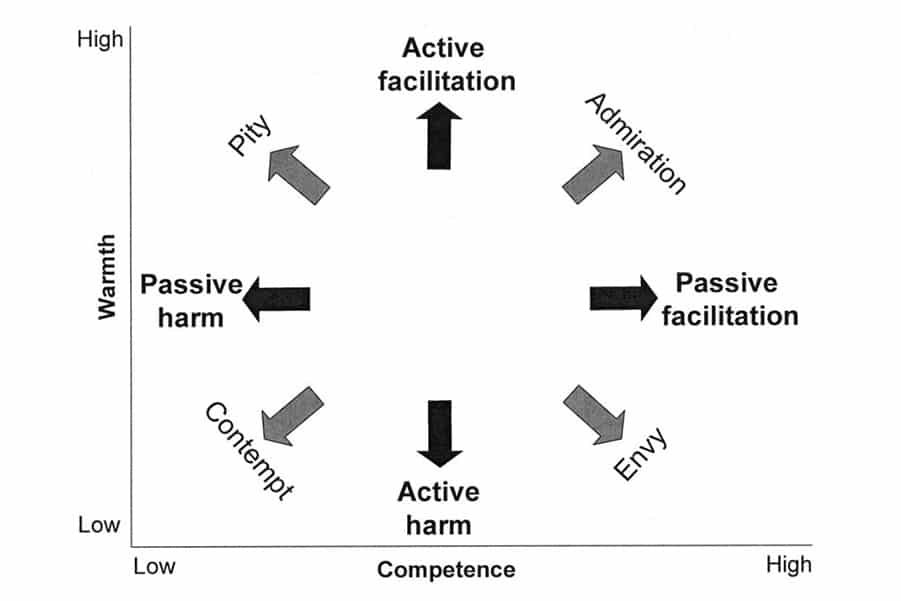People judge salespeople based on two things:
- Your warmth
- Your competence
Professor Cuddy, et al., of Harvard University has been researching the stereotype content model for over a decade. According to the model, when you portray yourself as warm, non-competitive, and friendly, people will feel like they can trust you.
If you also seem competent, for example, if you perform your job well and you have good vocabulary, people will be more likely to respect you.
It’s valuable to note that as a salesperson, you must show warmth first and then competence.
From an evolutionary perspective, it’s more important in survival to know you can trust that someone is not going to take advantage of you, rather than being proficient in your work.
When researchers looked at the cross-cultural differences between 10 non-US nations, they found the same stereotypes to be true regarding warmth and competence. This would suggest a psychological norm, allowing for businesses to form policy that best serves developing a positive customer image, or buying experience, as it were.
In the same study, they ascertained that in highly competitive groups, that competence was perceived as high, but warmth was lacking.
This leads one to believe that while salespeople are often highly competitive, this may negatively impact the customer’s perception of their trustworthiness.
In a complimentary, but separate study of consumer behavior by Avery, Malone, and Fiske of Harvard University, it was revealed that brands are simply an extension of how we judge one another. Basically, people view brands like people, and judge them accordingly.
So if you want to be the salesperson, or business, that people love the most and think of first, start by letting your warmth shine through.
Good selling.
- Futuristic Game for the Ad Masters - July 11, 2024
- Classical Conditioning: Pavlov’s Dog in Advertising - June 20, 2024
- Hear, See, Speak No Advertising - June 9, 2024

